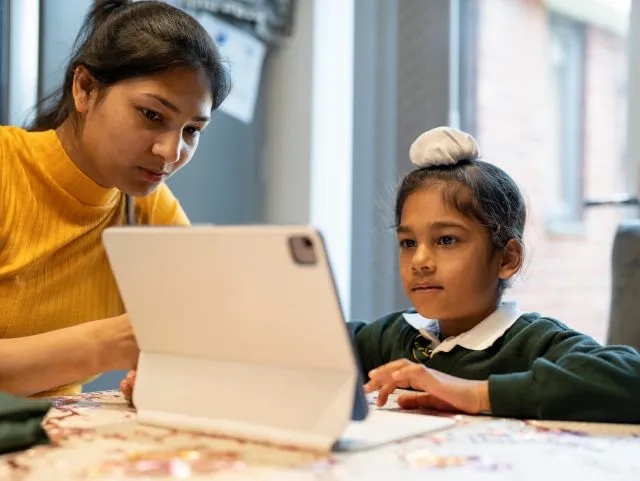Children who get a good start in life are more likely to do well in education, get better jobs, and even live longer. With the government’s recent announcement of £300 million for new Family Hubs in 75 local communities, our need to understand how best to use this investment to help young children is all the more pressing.
A growing body of evidence about the importance of parenting for children’s development means that parents and families have become an inevitable target for resources, campaigns and toolkits. Family and parenting programmes are also a popular tool used by the government and other sectors to attempt to improve how families support their children’s learning and development. While the growth in both the types and the number of these programmes is encouraging, there is also an increasing need to review and evaluate them and determine what works.
Evaluations conducted across a wide range of family and parenting programmes globally have produced evidence that both parents and children can experience positive effects. But these programmes differ greatly in scale, focus and content, and that makes it difficult for families and parents to choose what best suits their needs. It also makes it hard for early-years practitioners and policymakers to determine which programme to recommend in a particular context. Better information is needed to make more effective decisions and, ultimately, deliver more positive outcomes for families and tax-payers alike.
This report provides an initial step in summarising some of the evidence. It is not exhaustive, but offers an overview of common benefits and challenges of known parenting interventions. It presents the findings of a rapid evidence assessment conducted in two parts. First, we aim to make sense of this complex landscape by examining the impact of family and parenting programmes with the most promising evidence. The definition used for family and parenting programmes was broad, relating to any programme aimed at helping parents and families to support their children’s learning, wellbeing or development. Second, we review the evidence relating to one of the largest nationwide initiatives aimed at supporting families with young children in recent decades: Sure Start. Our aim was to understand the broad advantages and disadvantages of the programme.
Early inequalities shape later life outcomes, and failure to address these will mean that a significant number of children do not reach their educational and economic potential. This report is one element of the Commission’s larger programme of work focusing on the importance of the early years on social mobility outcomes, which includes a parenting campaign and additional research on the role of families and parents.
